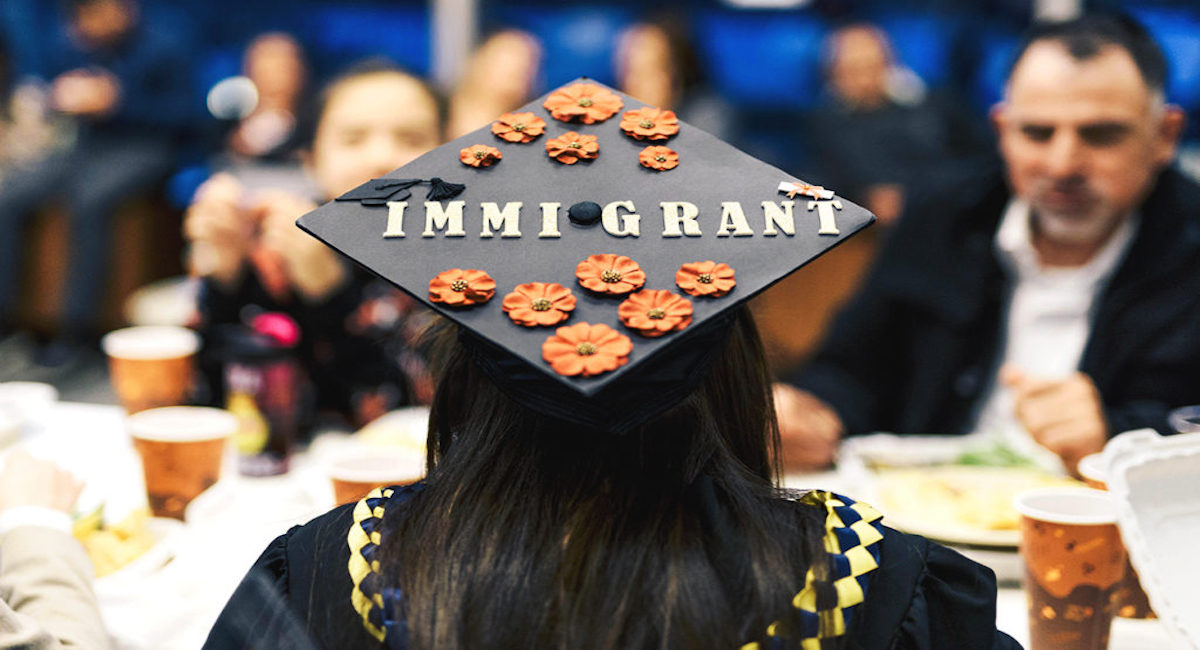Californians who need trustworthy legal help to get through the lengthy and complicated U.S. immigration process can find it for free at any of the state’s 115 physical community colleges.
At an Oct. 24 press briefing hosted by Ethnic Media Services, lawyers, community college officials and a formerly undocumented student described their experiences with the Higher Education Legal Services Project.
“Over 10,000 students have benefited from the program” since its launch four years ago, says Alonso Garcia with the Foundation for Community Colleges, “and over 5,700 just last year.” Garcia notes as well that community college faculty and staff are also eligible to receive services whatever their age or immigration status.
The Higher Education Legal Services Project is a partnership between the Foundation for California Community Colleges and the California Department of Social Services. It is easily accessed via the website Find Your Ally, where interested parties can enter their zip code or college of attendance and, in a little over a minute, be connected to the immigration attorney supporting that college.
An estimated 50-70,000 undocumented immigrants are currently enrolled in a California community college.
Free, ongoing legal services
The attorney time is free and continues regardless of when the affiliation ends with the community colleges, Garcia explained. Services include support for legal permanent residency (green cards), DACA Temporary Protected Status (TPS), or advanced parole.
All information provided is kept private. The work is done confidentially by nonprofit legal teams approved by California or the U.S. Department of Justice with at least three years’ experience in immigration work.
As a student, you can be taking a full load of classes or just one, for credit or not. You can be enrolled in adult education programs through the community colleges or attending more than one community college, in person or online. Services are available upon request in the clients preferred language and services are available either in person or virtual.
The program can also help clients obtain fee waivers for citizenship and DACA renewal applications and, as of Nov. 1, with naturalization applications and advanced parole filing.
“If anything, I would encourage people to enroll in their local community college for at least one credit so they could access services like ours and hopefully find a way to move forward,” said attorney Manoj Govindaiah, of Oakland-based Immigrant Legal Defense.
Immigration support where it’s needed
He noted undocumented immigrants generally confront two major obstacles when it comes to accessing legal services: finding quality lawyers and being able to meet with them in person.
That’s especially the case for those in rural communities, where resources and transportation are more limited. “This program goes to the schools…bringing support to where it is needed,” said Govindaiah. He added Find Your Ally also offers up-to-date legal advice that can help clients find paths they may not have understood they were eligible for.
“California community colleges are always here as an access point to higher education,” Kelly Fletes, Dean of Student Services at Monterey Peninsula College, pointed out. “We accept 100% of the students who apply.”
A ‘basic need’ for undocumented students
Community colleges are ideal for reaching newly arrived immigrants, many of whom often enroll in ESL classes soon after arriving. Fletes also stressed that as California pushes to meet the basic needs of its population, for undocumented students, immigration services are among those basic needs.
“There’s a different level of anxiety that happens when you literally have to watch yourself or watch your back that you or your parents might be deported or they’re at risk of not coming home every day,” she said. “How could you focus on your education?”
And the cost of legal services can be out of reach for students not eligible for thousands of dollars of federal financial aid available to their peers. “I have students that have to work three to four jobs,” Fletes continued, mentioning one who arrived already $10,000 in debt for not-yet-completed legal services.
Don’t be afraid
Sabrina P is a first-generation college student of undocumented status. She said she didn’t know what she might qualify for, and worried what her situation might be after school if she didn’t have papers and couldn’t work.
She set aside her fears of discussing her immigration status and visited the program. “I asked them a lot of questions. They were like, ‘Don’t worry about it. We’re gonna help you out,’” she recalled.
“Every case is different,” she acknowledged, but “Now I can say that I’m in the process of getting my green card. I’m able to work and do other stuff I was denied before because I didn’t have any type of papers. I’m able to support my family a little bit better.”
She emphasized the importance for her of getting started as soon as possible, because even if the process takes years to conclude, your age on the date of your original application carries a lot of weight. “That’s often kind of a critical deadline,” she said.
“I would suggest to just don’t be afraid. Honestly, that’s the best you can do for yourself, because just asking is not gonna hurt anybody, and maybe help you out.”













